Economic collapse: The real message of the fall of Troy
- Published
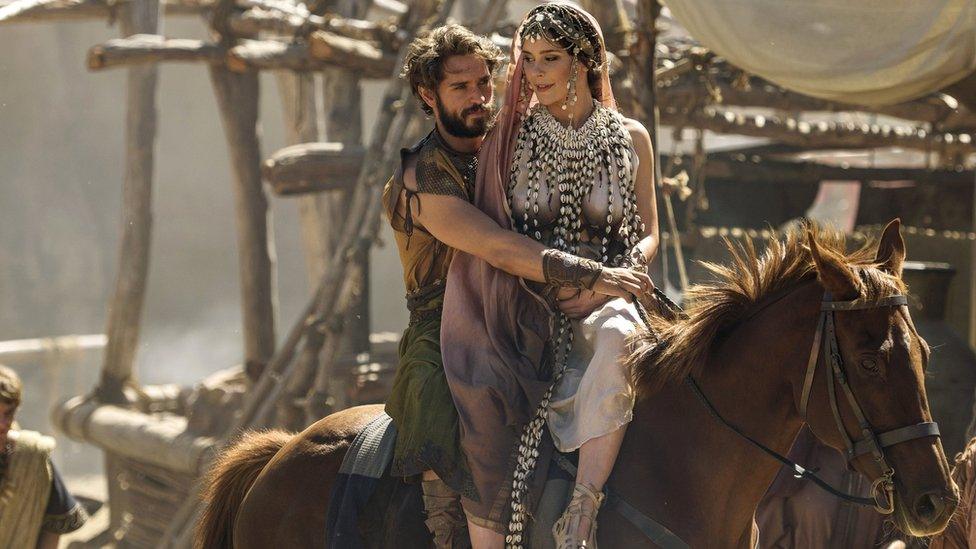
Star crossed lovers: Helen and Paris in the BBC/Netflix drama Troy, Fall of a City
The fall and sack of the city of Troy at the hands of an avenging Greek army is one that has been told for some 3,000 years, but contained within it are clues to a much wider global collapse - with lessons for our own 21st Century.
In 1300BC, at the height of the Bronze Age, the great powers of Egypt, the Hittites in central Turkey, the Greeks, Babylonians and Middle Eastern city states would have seemed secure to any merchant sailing around the Mediterranean.
None more so than the walled city of Troy, on Turkey's north west coast at the mouth of the Dardanelles.
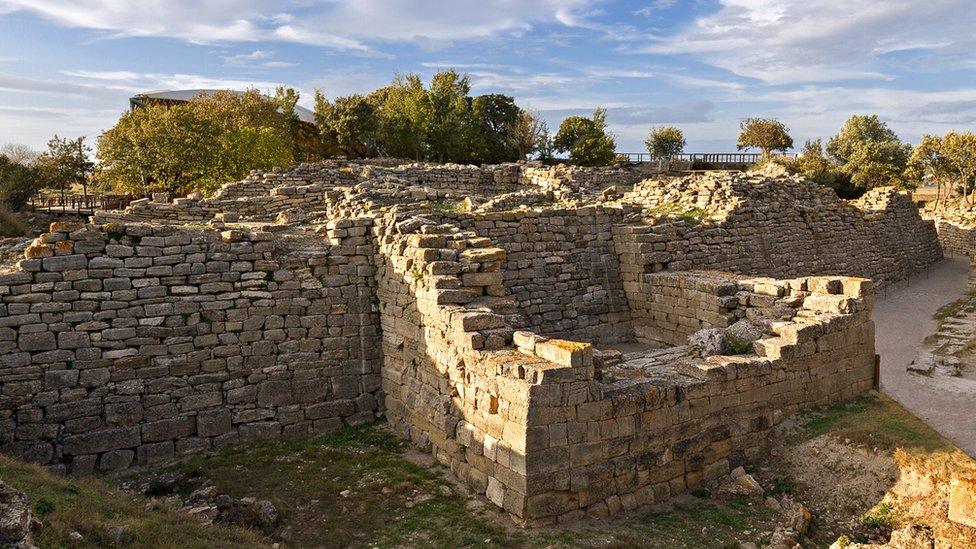
Bronze Age Troy was able to tax ships going into and out of the Black Sea
Ships were often forced to wait in its harbours for suitable winds to sail into the Sea of Marmara and Black Sea, so it was ideally placed to grow rich by taxing this trade.
Yet just over 100 years later, by about 1170BC, almost all these civilisations had collapsed. In the dark age that followed even the art of writing was lost.
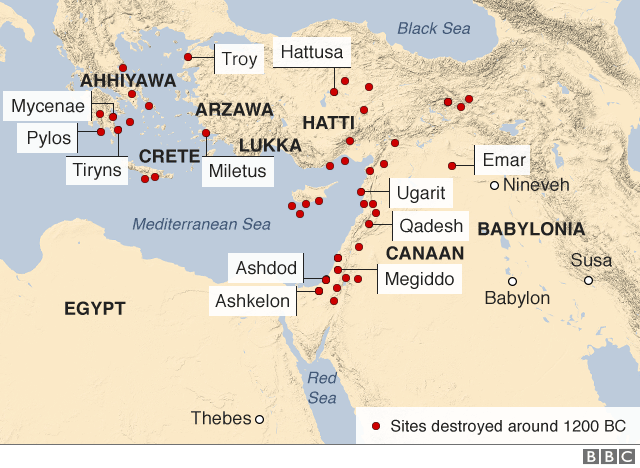
In Greek mythology, the tale of the fall of Troy was encapsulated in two epics - the Iliad and the Odyssey - traditionally attributed to the poet Homer, and set down in writing about 400 years later.
"He wasn't writing history but it is apparent that Troy was an important fortified place," says J Lesley Fitton, keeper of the department of Greece and Rome at the British Museum, external.
Interconnected world
The Bronze Age was typified by palace-based states all interacting and partially dependent on each other - which has similarities with our own age with its interconnected economies and financial markets, just-in-time manufacturing processes and international supply chains.
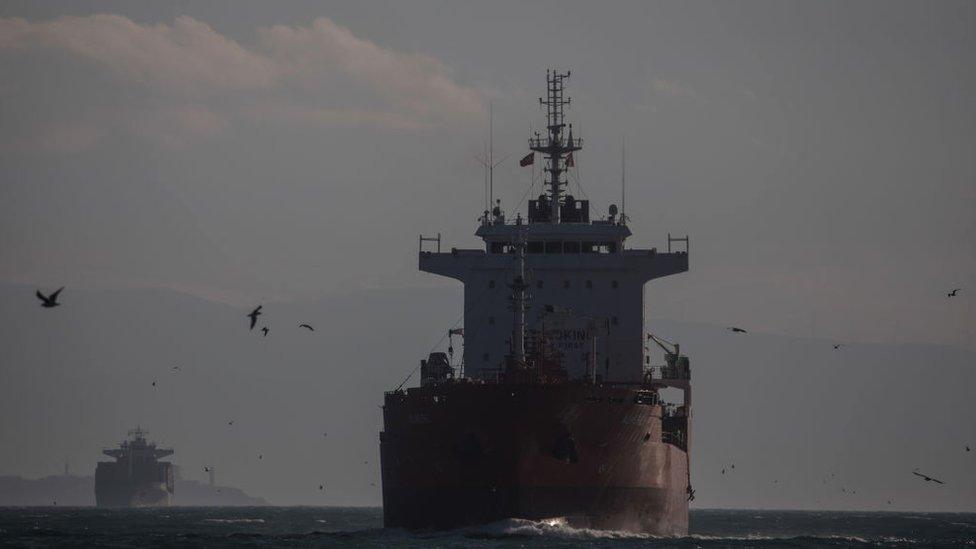
The Dardanelles are still a vital point in global trade networks
The key commodity of the age was bronze - without which no country could equip an army.
The copper came from Cyprus but the tin had to come 4,000km (2,500 miles) from Afghanistan; transported overland to Syria and then in ships along the coast, it was as vital as oil is now.
Dr Carol Bell, of University College London, external says that getting enough tin to produce "weapons-grade bronze" would have exercised the minds of rulers "in the same way that supplying gasoline to the American SUV driver at reasonable cost occupies the mind of a US president today".
Trade vulnerability
In the 21st Century, we are still vulnerable to interruptions to global trade.
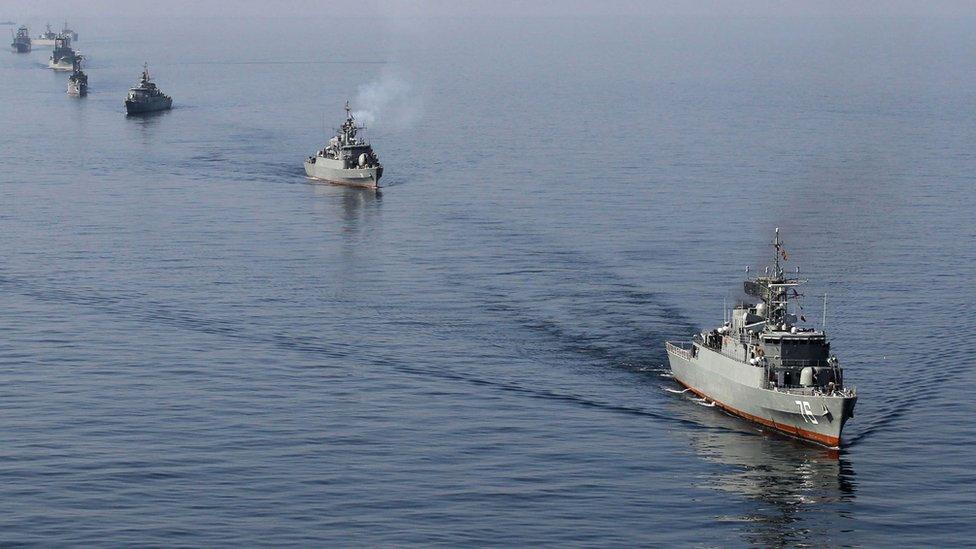
Iranian ships in the Straits of Hormuz: A fifth of global oil supplies pass through here
In 2012, global oil prices climbed after Iran threatened to close the Straits of Hormuz, through which about 20% of global oil supplies pass. Iran said this would cause a shock to markets that "no country" could manage.
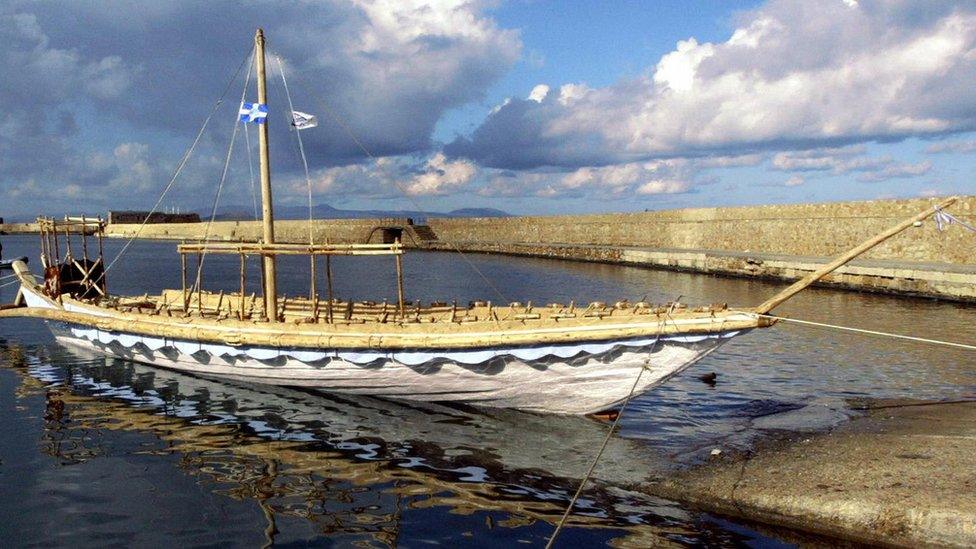
Bronze Age economies were dependent on ships like this for supplies of luxury goods, as well as glass, tin and copper
Last year, a Chatham House think-tank report urged governments to do more to protect key "chokepoints" on trade routes, external. It said the Dardanelles, the Turkish Straits, were "particularly critical for wheat, a fifth of global exports pass through them each year".
"A serious interruption at one or more of these chokepoints could conceivably lead to supply shortfalls and price spikes, with systemic consequences that could reach beyond food market," it added.
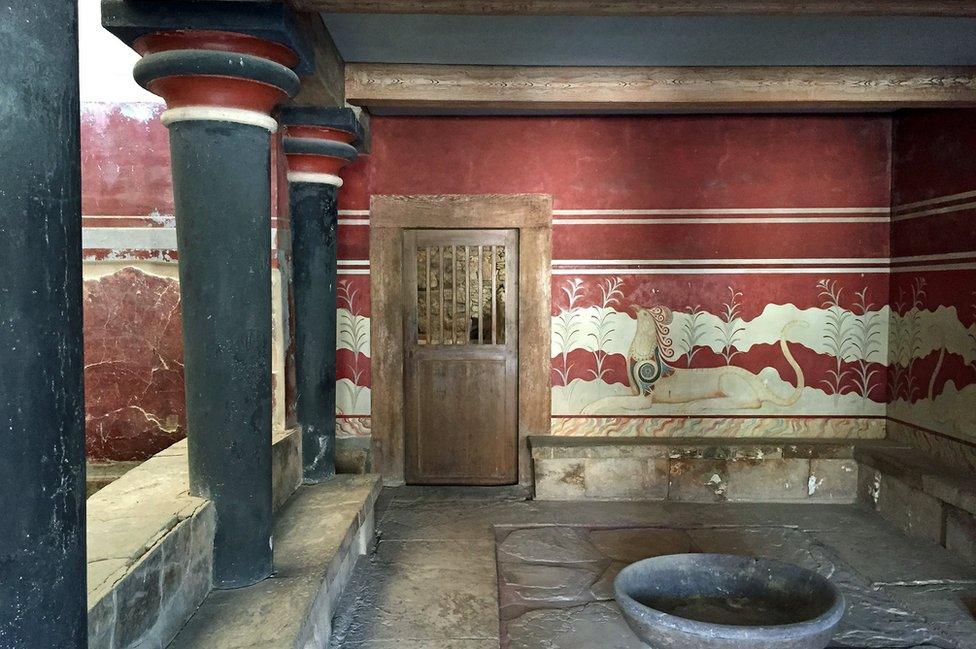
Knossos, Crete: palace-based economies were vulnerable to economic disruption
Back in the Bronze Age, it didn't take much to cause economic chaos. You only need a "few small interruptions or environmental problems," says Andrew Shapland, Greek Bronze Age curator at the British Museum, external.
Climate change
Then as now, climate change was a key factor. "We know that led to famine," says Eric Cline professor of archaeology at George Washington University, external, Washington DC
Indeed, pollen analysis, marine and oxygen isotope data show the period experienced 300-year-long droughts, external. The Mediterranean cooled significantly at this time, external, reducing rainfall levels over land.
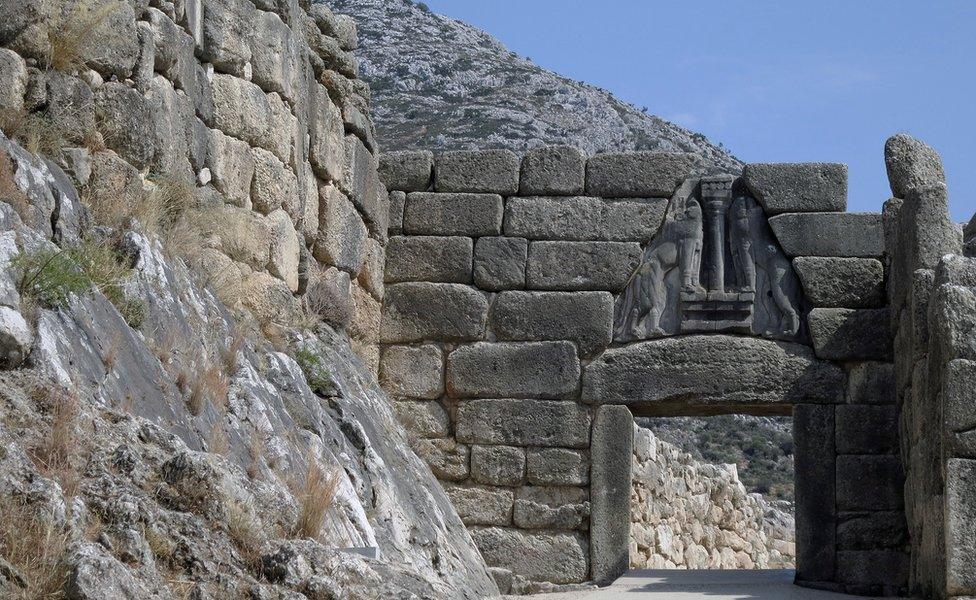
Mycenae: possibly the capital of Bronze Age Greece, the palace was built directly on an earthquake fault line
But the Bronze Age states were then hit by multiple events. Not just sustained droughts and famine, but also numerous volcanic eruptions, earthquakes, civil unrest, mass refugee migrations, trade disruptions and war.
"If only one thing happens you can survive. The difference in the late Bronze Age is you get the perfect storm. With one, two, three or four events you're looking at multiplier effects - you can't survive," says Prof Cline.
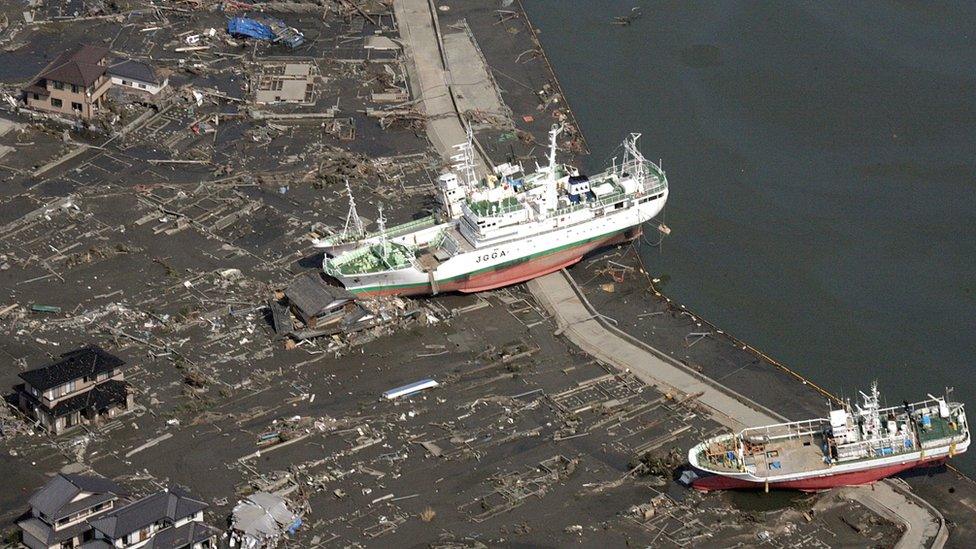
In 2011, the Fukushima tsunami and earthquake affected global IT and computer parts supply chains
Our own world may be more resilient yet even today earthquakes can cause economic chaos. When Japan was struck by the 2011 Tohoku or Fukushima earthquake and tsunami, the economic impact was felt right across Asia.
Multiple impacts
By 1250BC problems were accumulating. One Hittite queen appealed to Egypt for help, saying "I have no grain in my land". A Syrian merchant warned that "there is famine in our house, if you do not quickly arrive here we will all die of hunger".
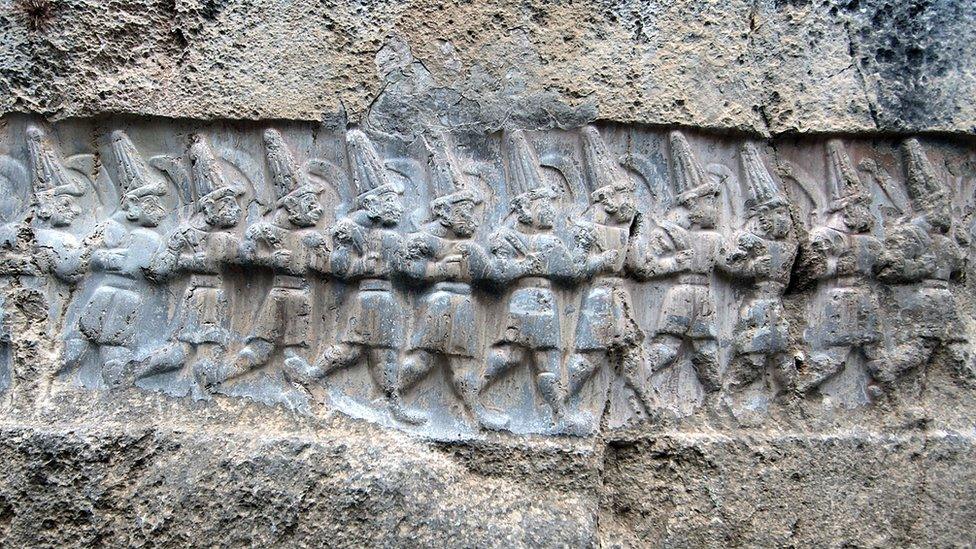
As famine struck, the Hittites appealed to Egypt for help
To help alleviate the situation the Egyptians started food shipments to their neighbours.
And even in the Bronze Age, governments were keen to promote their international aid programmes. One pharaoh boasted he "caused grain to be taken in ships to keep alive this land of Hatti (the Hittites)".
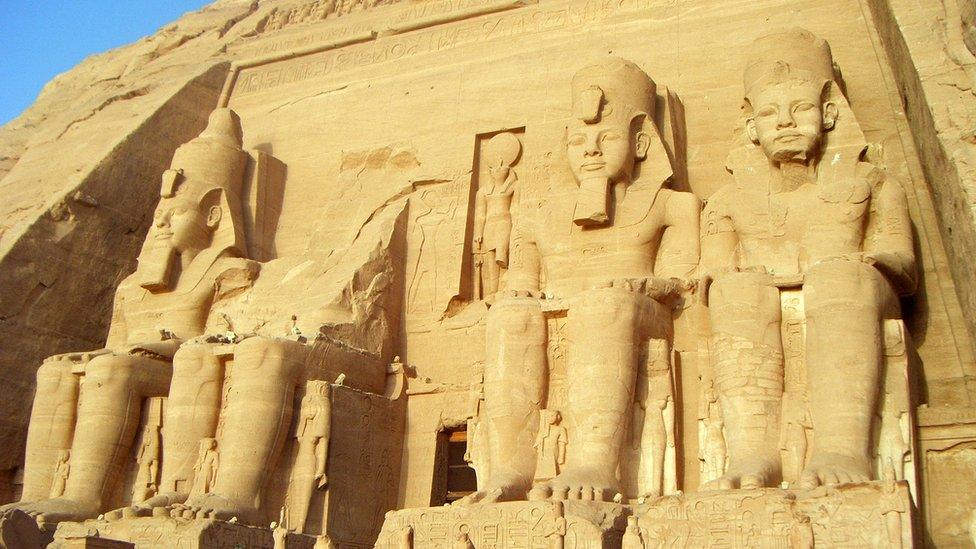
Thanks to the river Nile, Egypt was better placed than other states to withstand droughts
Despite this international co-operation it was not enough.
Whether those who lived around the palaces turned on their rulers because they were not getting fed or had lost their jobs is unclear. But as crops and economies failed, it triggered civil wars and the mass migration of refugees.

Homer: Truth or fiction?
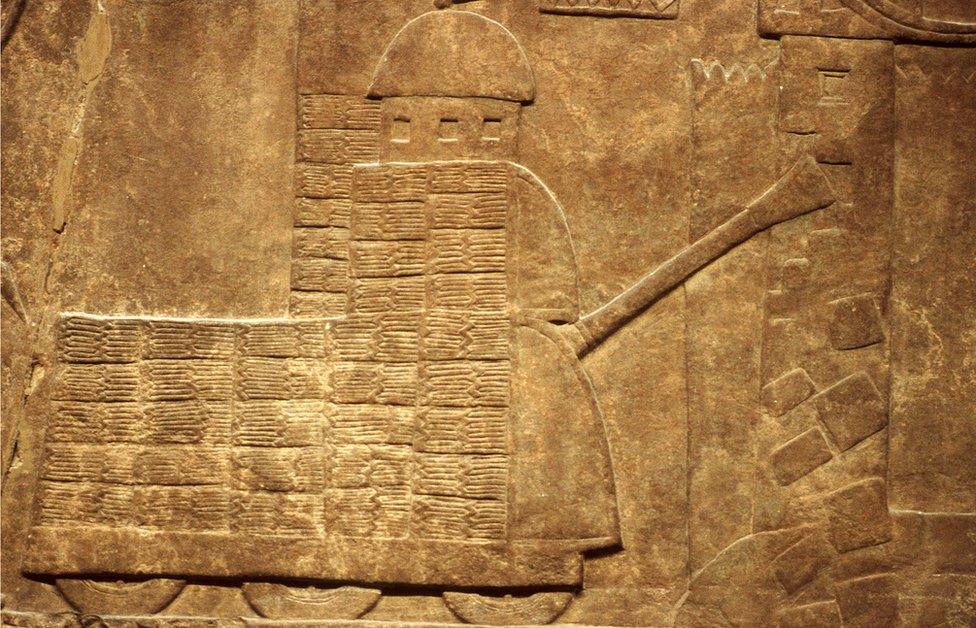
Homer's Trojan horse could have been a siege engine, like this later Assyrian example
In Homer, it is the affair between Troy's prince Paris and Greek queen Helen that triggers the legendary war.
In reality, contemporary records from the neighbouring Hittites confirm the Greeks "had a number of military campaigns in the west coast of Anatolia", says Spyros Bakas of the Koryvantes Association for Historical Studies, external, with one Greek ruler "leading 100 chariots and an infantry force against a Hittite prince".
The two sides certainly clashed over Troy (which was a Luwian city, sometimes allied to the Hittites). At one point Troy's royal family was deposed, and there is also a Hittite letter to a Greek king about a peace deal over Troy.
None of this proves Homer's accuracy but "Troy was clearly a place that could amass great wealth so it was always going to attract people who might want to sack it," says J Lesley Fitton.

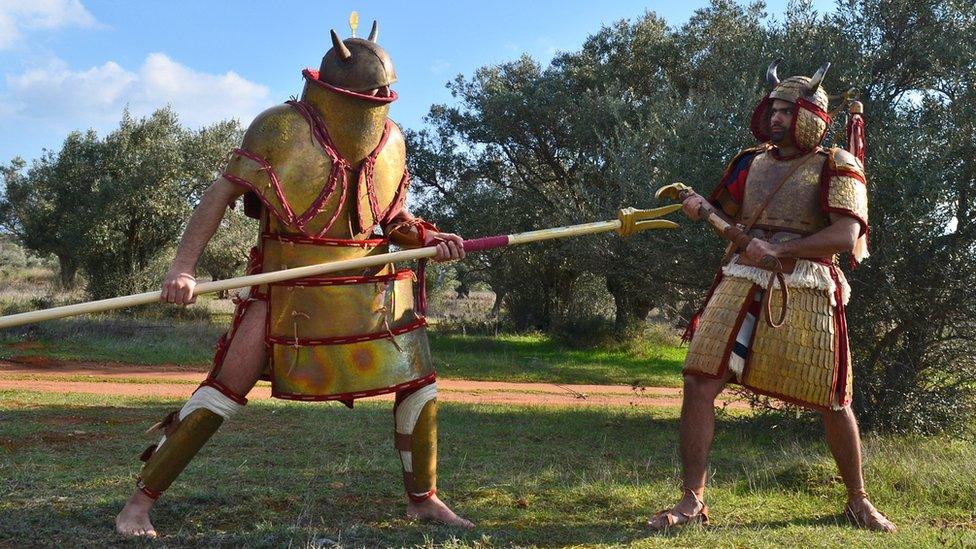
Re-enactors dressed as Bronze Age warriors: prototypes for Homer's Hector and Achilles?
Sacking of cities
Troy was certainly sacked around 1200BC though there is nothing from it or Greece (Greek records are little more than administrative lists) to shed light on what happened. But in Syria we do have the voices of the victims of the wider catastrophe.
The ruler of Ugarit, wrong-footed by fast-moving events, asked for help saying: "All my troops and chariots are in the land of Hatti and all my ships are in the land of Lukka. Thus, the country is abandoned to itself."
His appeal seems to have fallen on deaf ears; perhaps his neighbours were also hard-pressed. If any help did arrive it came too late, according to one of the last tablets from the doomed city.
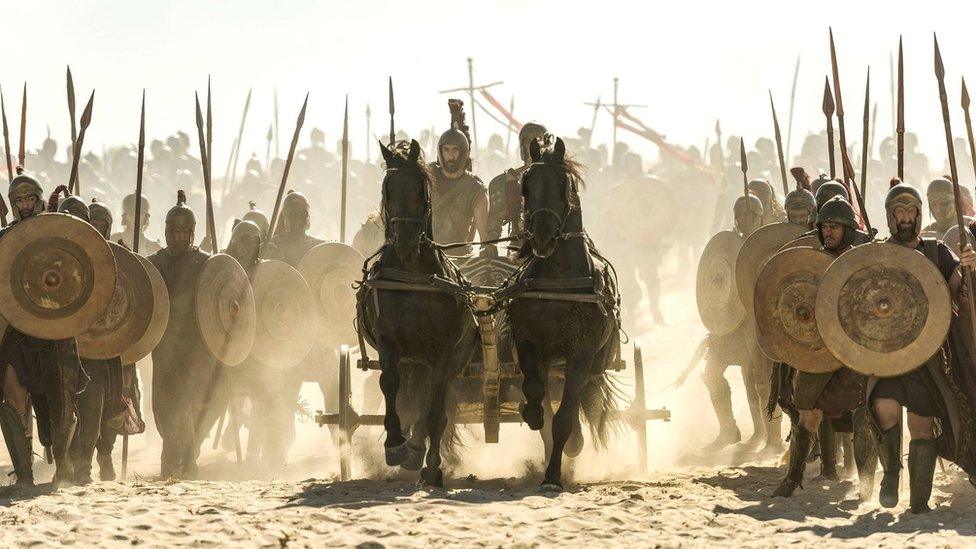
The Hittite name for the Greeks was Ahhiyawa, similar to Homer's name for them - Achaeans
"When your messenger arrived, the army was humiliated and the city was sacked. Our food in the threshing floors was burnt and the vineyards were also destroyed.
"Our city is sacked. May you know it! May you know it!"
Those who survived possibly ended being sold as slaves, or joined the growing number of refugees and lawless freebooters as societies broke down.
Blaming migrants
For their part, the Egyptians had a simple answer to what caused all the Bronze Age states to collapse: it was all the fault of different groups from around the Mediterranean, groups they called "the Sea Peoples".
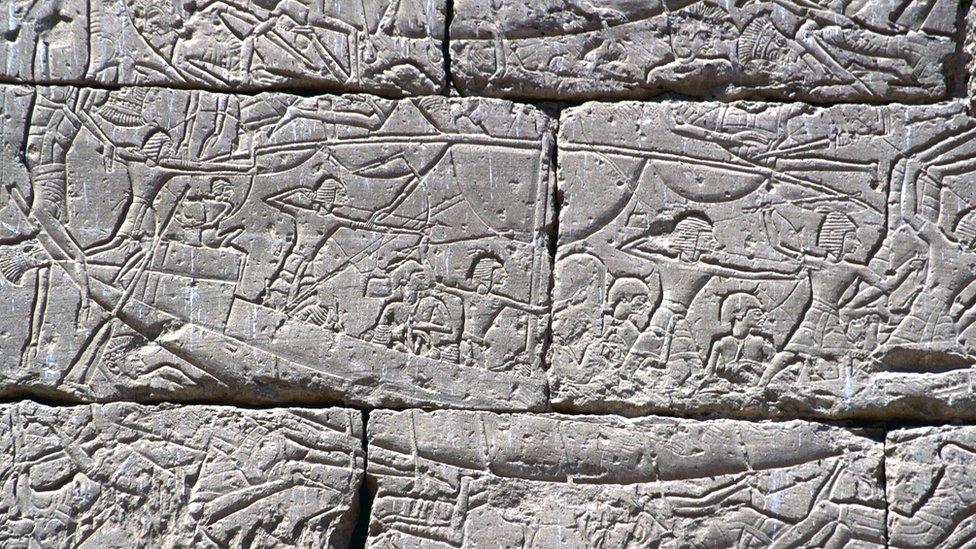
Ramses III's troops fighting the Sea Peoples in the Nile Delta
"The foreign countries made a conspiracy in their islands. All at once the lands were removed and scattered in the fray. No land could stand before their arms," says one Egyptian inscription.
Egypt seems to have had time to defend itself and its army beat off the Sea Peoples, says Prof Cline, with pharaoh Ramses III proclaiming "I overthrew those who invaded from their lands... they were made as those that exist not" .
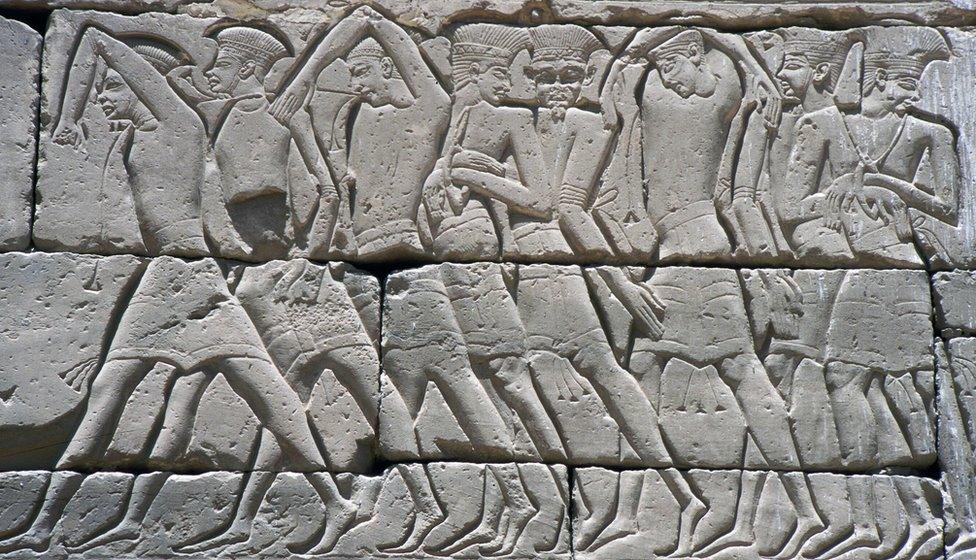
Sea Peoples taken prisoner: but were they responsible for the Bronze Age collapse or also its victims?
Andrew Shapland cautions that we need to be careful how we read such government statements: "Ramses is just taking these migrants and he's making them the aggressors.
"What if he is doing what any right-wing politician today is doing - and finding an outside set of people and blaming them for the economic woes?"
Pyrrhic victory
If the Greeks really did vanquish the Trojans, their victory was short-lived. Most Greek palaces were also soon destroyed or abandoned; the Hittites, Syrian city states, Assyrians and Babylonians also collapsed. Only Egypt survived.
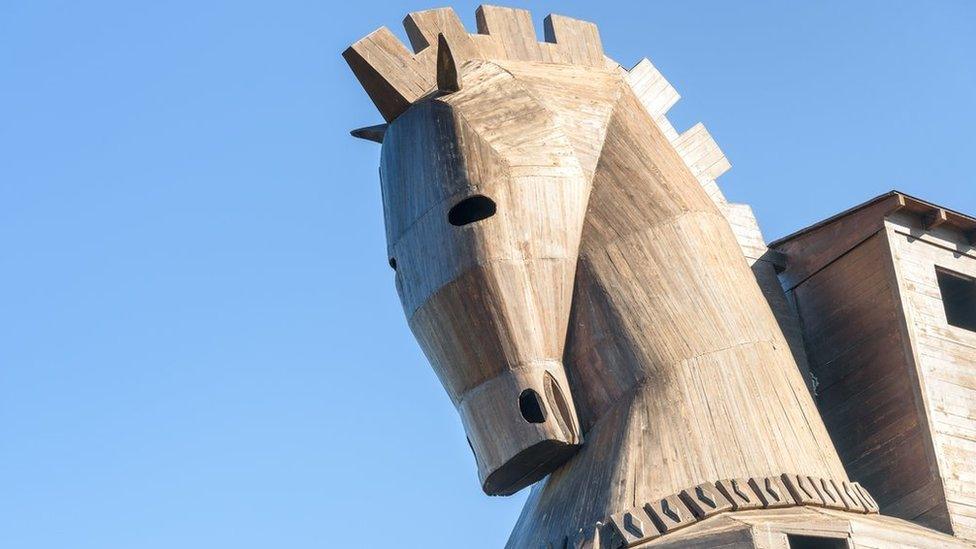
Homer's tale cautions us that ultimately all civilisations fail, warns Eric Cline
Unlike Bronze Age rulers who could only pray to their storm god for rain if the crops failed, we are far more aware of global problems and have far more technical resources to deal with them, says Prof Cline.
But Homer's is a cautionary tale, he argues.
"Every civilisation in the world has ultimately collapsed. It would be very hubristic to think we will be the only civilisation to survive."

Troy: Fall of a City
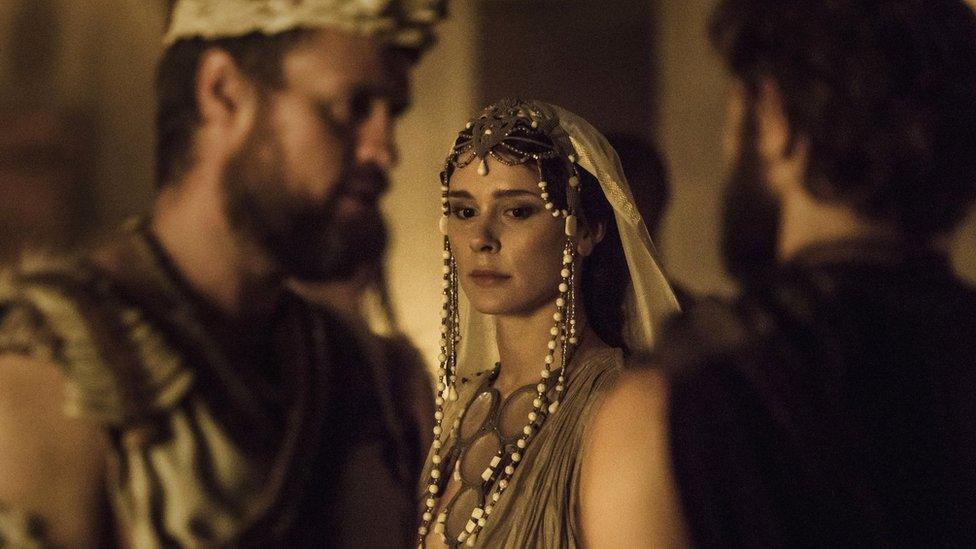
Bella Dayne as Helen of Troy, "the face that launch'd a thousand ships"
The BBC/Netflix eight-part drama retells Homer's story from the Trojans' viewpoint. "The story we're telling has an epic and political sweep but is also deeply human and intimate," says writer David Farr.
Troy: Fall of a City starts at 9.10pm, 17 February, on BBC One.